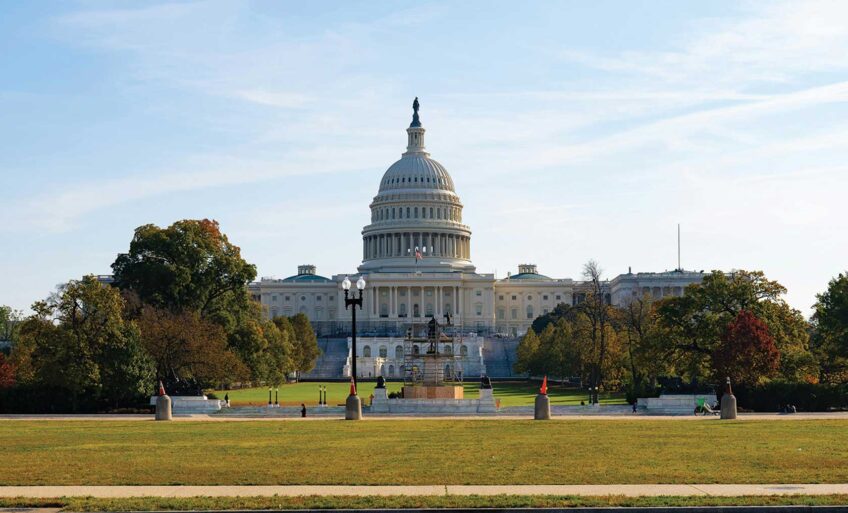Why Romney will pick a boring white guy for vice president
The word from GOP insiders close to presumptive GOP presidential contender Mitt Romney is that he will pick “a boring white guy” as his vice presidential running mate. That’s true for one obvious reason and another even more fundamental reason about the vice presidency.
The obvious is Sarah Palin. There’s little debate that she did irreparable damage to the at-best problematic chances of GOP presidential candidate John McCain’s chances of bagging the White House in 2008. Palin was a desperate gamble by McCain to melt the frost that ultra-conservatives and conservative Christian evangelicals had toward him, and hopefully appeal to some women voters.
But Palin was the most poorly vetted, polarizing vice presidential candidate in decades. She single-handedly turned off every minority, environmental, civil liberty and gay activist group, conservative Democrats, centrist independents, and even an array of old-line GOP establishment conservatives who broke ranks and endorsed Obama.
The irony is that in 2008 Romney would have been the one choice that would have come closest to giving McCain the ticket balance that he needed, plus the equally crucial necessity: money. He would have been a cash cow for McCain.With Obama’s phenomenal ability to jingle the campaign cash registers off the counter, this would have been a huge asset to plop on McCain’s political balance ledger. The other fatal blow to McCain’s slender chances happened when Obama slaughtered him on fundraising: $750 million to $450 million.
Romney won’t make that mistake. That’s why some of the names floated as potential Romney vice-president picks such as Florida Sen. Marco Rubio, New Mexico Gov. Susana Martinez, Wisconsin Rep. Paul Ryan and even New Jersey Gov. Chris Christie would be too risky. They are either too new, too untested nationally, or too potentially polarizing. It would be Palin all over again.
The bigger reason, though, that he needs a boring white guy on his ticket is that vice presidents must do three things: they must balance the ticket; make up a real or perceived deficit that the presidential contender has; and hopefully help him win the presidency — or at the very least don’t help him lose it. Then-Democratic presidential contender Obama understood this. He picked Joe Biden because he fulfilled all three requirements: balance, experience and most importantly, he took away one of McCain’s strongest hit points against Obama — his perceived woeful lack of foreign policy credentials.
There was much pressure on and temptation for Obama to pick Hillary Clinton as his VP running mate. But she violated the rules of thumb in politics. She was a Northern, moderate Democrat, as is Obama. She was with lots of personal and political baggage. She would have piled the X Factor of gender bias to the already worrisome X Factor of racial bias on top of Obama.
Bill Clinton was the one recent exception who defied the rule of thumb on balance in picking a vice president. Al Gore, like him, was a young, Southern Baptist. It worked because Clinton needed Gore to bolster his pitch that he was not another stereotypical tax-and-spend — soft on crime, weak on military and national security Democrat. This was the traditional attack point that every Republican going back to Richard Nixon in 1968 hammered their Democratic opponent on.
The vice presidential pick then has become a high stakes game in the evolution of presidential politics from an office that was for decades considered a graveyard for the politically ambitious or at best, an after-thought ceremonial title that carried no real importance or distinction. The vice president is more than just a standard dressing up of the presidential ticket. He or she must be able to actually help a presidential candidate win.
There have been a few times in past elections when vice presidents have made a difference. Lyndon Johnson in 1960 is the textbook example of that. He brought legislative savvy, he was a Southerner then still in good stead, and he could deliver two or three Deep South states. He did his job. Bush Sr. also helped Reagan in 1980. He brought experience, insider connections, and as a transplanted Southerner, the regional balance that Reagan needed. And he was moderate enough to give Reagan a little edge with moderate Republicans.
A vice president is increasingly called on to be directly involved in discussing, implementing and even helping to formulate domestic and foreign policy. The near textbook example was Biden’s blunt statement that he backs gay marriage. Though some claim that this forced Obama’s hand and even put him on the spot on a volatile, political minefield issue, Biden essentially reflected a position that for months had been much discussed, debated, and thought through in the Obama administration. As it is now, the vice president is now often right in the center of the political debate.
The 2012 presidential election will be a nail biter. But even if it was a potential runaway for either Obama or Romney, the vice presidency would still be important. Obama knew it and picked Biden. McCain missed it and picked Palin. Romney won’t miss it, and will pick a boring white guy.
Earl Ofari Hutchinson is an author and political analyst.






